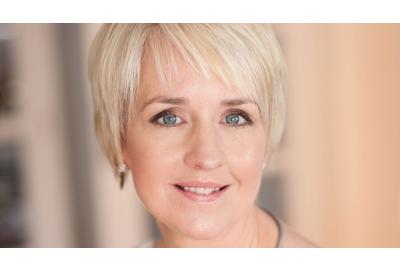5 Effective Sleep Strategies
Lucy Wolfe, CGSC, MAPSC, is a paediatric sleep consultant, Author of The Baby Sleep Solution and mum of four young children. She runs a private sleep consulting practice with her 98%-effective approach for sleep she provides knowledge, expertise and valuable support to families.
See www.sleepmatters.ie t: +35387 2683584 or e: [email protected]
It can come as a surprise that infant sleep can be challenging for new parents. With many factors affecting our young children's sleep, it can be difficult to know where to start. Sleep resistance due to overtiredness and discomfort due to colic and reflux rank high as the most common contributory factors. New parents can be mindful of some strategies that continue to endorse safe sleep, but also help their child go to sleep more easily and for longer.
5 Effective Sleep Strategies
1.Have a regular wakeup time to help regulate your small baby's body clock. Generally, anchoring the day with a 7.30am get up, feed and start the day can help adjust the body clock and open up the natural nap times. Sleeping later in the morning, especially if you have had a sleepless night can often become a vicious cycle making it difficult to establish daytime sleep and bedtime. Even though it may feel difficult to do-Get up! Always start the day with a feed and expose your baby to bright, natural light which will help to organise their day time sleep and you can both go back to sleep again within about an hour for the first nap of the day.
2. Try to keep the days bright and the night's dark. Babies can't fully distinguish day and night until closer to 6-8 weeks. Help them become regulated and balanced by exposing them to natural light during the day and keep lights low at bedtime
3. Get plenty of fresh air and outside activity. Studies support that young infants who get outside specifically in the afternoon sleep better and longer than those who do not. There is a suggestion that babies are more active in the light but also the influence of light on the early development of the biological clock that regulates many body functions such as and secretion of the sleep hormone melatonin that play s a key role in well balanced sleeping patterns
4. Have a flexible feeding and sleeping balance for the day time. Learn to read your baby's sleep and hunger cues. If you operate some sort of a daytime structure it can make reading your baby easier because the cues will coincide with what you feel should come next-it is normally either a feed or a sleep time, with very young babies unable to stay awake longer than 1.5-2 hours at a time. Early sleep signals may be represented by brief eye rubbing, snuggling into you and zoning out. Try to capture this moment and avoid later fussy signs that are typically too late and in turn may cause a resistance to sleep and short nap duration
5. Ensure adequate day time sleep. Do your best to make sure that your infant is well rested throughout the day. Don't worry if your baby will only sleep on the go or in arms-in the short-term this is a good strategy- the more rested they are, the better able they will sleep at night for you. Parents can work on phasing out motion sleep when they are more robust and capable of learning if they are resistant at the start, this would normally be closer to 6 months
During the early months some babies will sleep better than others, all babies can eventually become great sleepers in time and especially within the second half of the first year. Parents may find the early months draining and exhilarating all at the same time, but don't worry. Longer stretches of sleep are just around the corner.
Try not to worry too much about amounts of sleep but bear in mind the following:
| Age | Night time | Day time | Number of Naps |
| 4-6 months | 10-12 h | 3-4 h | 3-4 |
| 6-8 months | 10-12 h | 3-3.5h | 3 |
| 8-12 months | 10.5-12 h | 2.5-3h | 2 |
| 12-18 months | 10.5-12 h | 2-2.5 | 1-2 |
Every child is different, but it is helpful to aim for somewhere in this range for optimal rest, health and well being.
